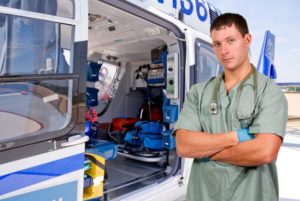Danielle Smith always had a passion for nursing, especially in critical care. Before joining Nurse First, she was a per diem nurse from 2005 and traveled to different facilities for over 20 years. Now on her second travel nurse contract with Nurse First, Danielle has been across the country, from her hometown in Albuquerque, New Mexico, to Montana, Arizona, Colorado, and many more!
Danielle was a surgical scrub technician for labor and delivery throughout nursing school, general surgery, vascular surgery, and orthopedic. Afterward, she transitioned from the OR to different units such as the Post Anesthesia Care Unit (PACU), Medical Intensive Care Unit (MICU), cardiac open heart surgery, and the Intensive Care Unit (ICU) until 2011 due to a back injury. Now she has settled into Emergency Room nursing, where she can continue her practice without much strenuous activity.
Accompanying her nursing passion, Danielle loves the opportunities travel nursing gives her to meet new people, acquire new skills, and visit different facilities. She has even seen the industry grow to be the thriving profession it is today.
“I was nursing back in the day when hospitals had nursing calls and when nursing agencies would do daily per diem assignment,” she said. “From there, travel nursing just evolved and became a big thing, and per diem nursing gave way to travel nurse contracts.”
Like most nurses, Danielle gets the first-day jitters the night before a travel nurse assignment, thinking of all the “what-if” questions and not knowing what to expect. Because she works in the ER, she always has to hit the ground running with no time for hiccups. Fortunately, there has never been a situation where no one was willing to help her. And if all else fails, she has a great strategy for breaking the ice.
“If this helps anybody else, I bring donuts and coffee on my first day,” she said. “ You show up with donuts and mocha; listen, you’re approachable, and you have friends. That always helps.”
As a well-traveled nurse, Danielle’s advice to aspiring travelers is to always ask questions, do your research, and be very selective with the travel nurse assignment you choose. Your travel agency should understand that you’re new to the field and should really be invested in your relationship with them and vice versa.
In the future, Danielle would love to see a mentoring program started. Her vision is for new travel nurses to pair with positive, passionate, and seasoned travelers for a weekly video call for 4–8 weeks, with some calls including the recruiter. Then going forward, the calls would become optional, but it would provide new nurses with real-time support for challenges unique to travelers that their mentor has already conquered. Topics could include how to find housing, avoid scams, make friends, what to do if you are overwhelmed, how to ensure continuity in personal meds and healthcare on the road, traveling with pets and kids, dealing with burnout, etc.
“There are so many stages of growth for the traveler, and having a mentor can make transitions easier,” she said. “Sharing these intense moments with the recruiter helps them to better understand their nurses and better support them in the field. The veteran travelers will get satisfaction from ensuring our next generation is rising to meet the challenges and very high standards expected of travel nurse professionals.”
Ready to start your journey as a travel nurse and follow in Danielle’s footsteps? Visit our job board or available travel nurse jobs!

From a Staff Nurse to Travel Nurse: Everything You Need to Know to Expand Your Career
Travel nursing has been an in-demand career for years now, but the pandemic pushed demand for travel nurses to an all-time high. If you’re considering making the move to travel nursing, you’re bound to have certain questions. How does travel

